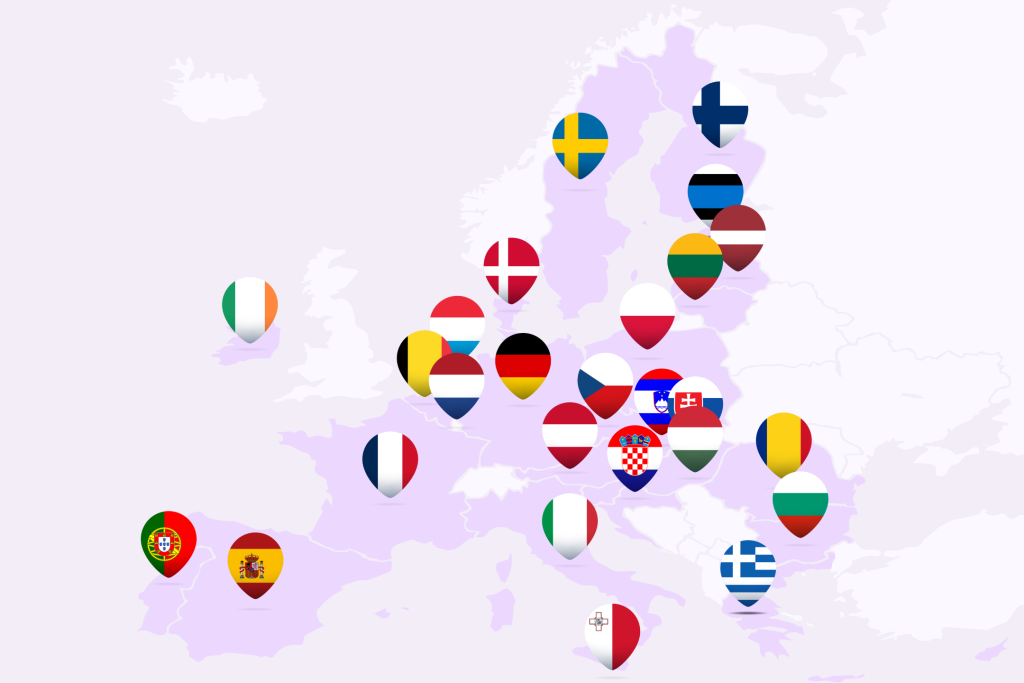These are the cheapest countries in Europe you can live in as a student.
Every year, many people just like you dream about moving to Europe to study. And it’s easy to see why; you’ll have access to top-quality education and the chance to grow on a global level.. But along with those opportunities come financial responsibilities that you can’t ignore. Since the euro and pound have stronger purchasing power than your local currency, managing your money wisely becomes important if you want to thrive abroad. The good news? Not every European country will stretch your budget thin. Some countries are known for being affordable while still offering a great student experience.
What “Cheap” Really Means

There are many things to consider when you are looking for a cheap European country to study in. Here are some major factors to consider:
- Cost of housing: You need to know if you will be using University dorms or off-campus rooms.
- Food and eating out. You also have to consider the cost of groceries.
- Transportation: Local travel passes or bike rental vs. owning a car.
- Student-friendly services: Discounts, affordable books, and part-time work availability.
- Language and lifestyle: Some places are cheap but remote or less English-friendly.
Top affordable European countries for students.

If you’re thinking of studying abroad, here are some of the cheapest countries in Europe where you can live:
1. Poland
If you are looking for affordable education and living conditions, then Poland is a good place to consider. In fact, the overall cost of living in this country is quite low compared to places like England or Switzerland. Tuition fees at public universities range from about €2,000 to €4,000 per year for many English-taught programmes. Living costs, including shared accommodation, food, and transport, tend to fall between €400 to €700 per month. However, it depends on the city you are staying in. For example, places like Warsaw, Kraków, and Gdańsk have lively student scenes.
2. Hungary
Hungary has similarly affordable tuition and a low cost of living. Living in cities like Budapest or Debrecen, you will need to spend between €500 to €800 monthly. But one thing is that their tuition in many programs is significantly lower than in Western Europe. It’s especially appealing if you want decent infrastructure and English programmes without the high price tag.
3. Czech Republic
The Czech Republic has a blend of culture and good value. For students who want to study abroad, the costs of rent and food are reasonable, and their public transport is efficient. Another thing is that many of their universities provide English courses and tuition for non-EU students may vary, but with careful budgeting, this is one of the most balanced options you can get.
4. Greece
Greece is one of those places where you don’t break the bank getting an education, particularly if you want Mediterranean food and low overhead costs. If you’re a non-EU student, it is better to choose public universities so your tuition fee is low. Also, cities like Thessaloniki or smaller towns are much cheaper than Athens. Day-to-day costs often come out cheaper if you choose to live simply.
5. Portugal
Portugal is often overlooked as a study destination, since it’s easy to gravitate toward more popular cities like London or Munich. But it offers a great balance: relatively low tuition fees for many courses, a mild climate, and lower living costs compared to other European countries. Costs can be even cheaper if you choose to study outside Lisbon. Another thing about this country is how most people have good English proficiency, and if you want to reduce costs further, you can go for shared flats, local meals, and public transport.
6. Lithuania
Lithuania is one of those hidden gems you might not have considered. If you’re looking to study in Europe without spending too much, this country could be perfect for you. You’ll enjoy fewer crowds, affordable rent, and a lower cost of living overall. In cities like Vilnius and Kaunas, you’ll find that housing and food are especially budget-friendly.
Hidden Costs Students Often Forget

If you don’t want to end up messing up with your budget, here are some hidden costs you shouldn’t forget:
- Utilities in winter: Heating and electricity can lead to high bills in cold months. So, you should consider that.
- Visa, insurance, and administrative fees: Some may be minimal, others can add up depending on your citizenship and programme.
- Language learning costs or extras: If you need local language courses or books.
- Travel home: Flights back to Nigeria or the home country can be expensive if not planned. Booking in advance helps.
Picking the right country affects not just your lifestyle but also your mental well-being. If you choose a very expensive country, you risk falling into debt. And when you’re constantly worrying about living costs, it can take your focus away from studying, building friendships, and looking after your health. On the other hand, living affordably gives you the freedom to grow, learn, and enjoy your experience without the weight of financial stress. And when it comes to sending money back, using CadRemit allows you to do so with transparent exchange rates and instant transfer options.
Wherever you decide to study in Europe, remember that Poland, Hungary, Czechia, Greece, Portugal, or Lithuania are strong options with lower tuition fees and affordable day-to-day living. These countries also offer plenty of support for students. When choosing your destination, think about what matters most to you: language, city size, climate, local culture, and of course, your budget.
No matter where you go, keep your monthly budget tight and realistic. Factor in essentials like rent, utilities, food, travel, and study materials. Don’t forget seasonal costs, such as heating in winter or extra clothing. Use tools to compare living costs at home and abroad, look out for cheap flights, and make the most of student discounts and perks.




